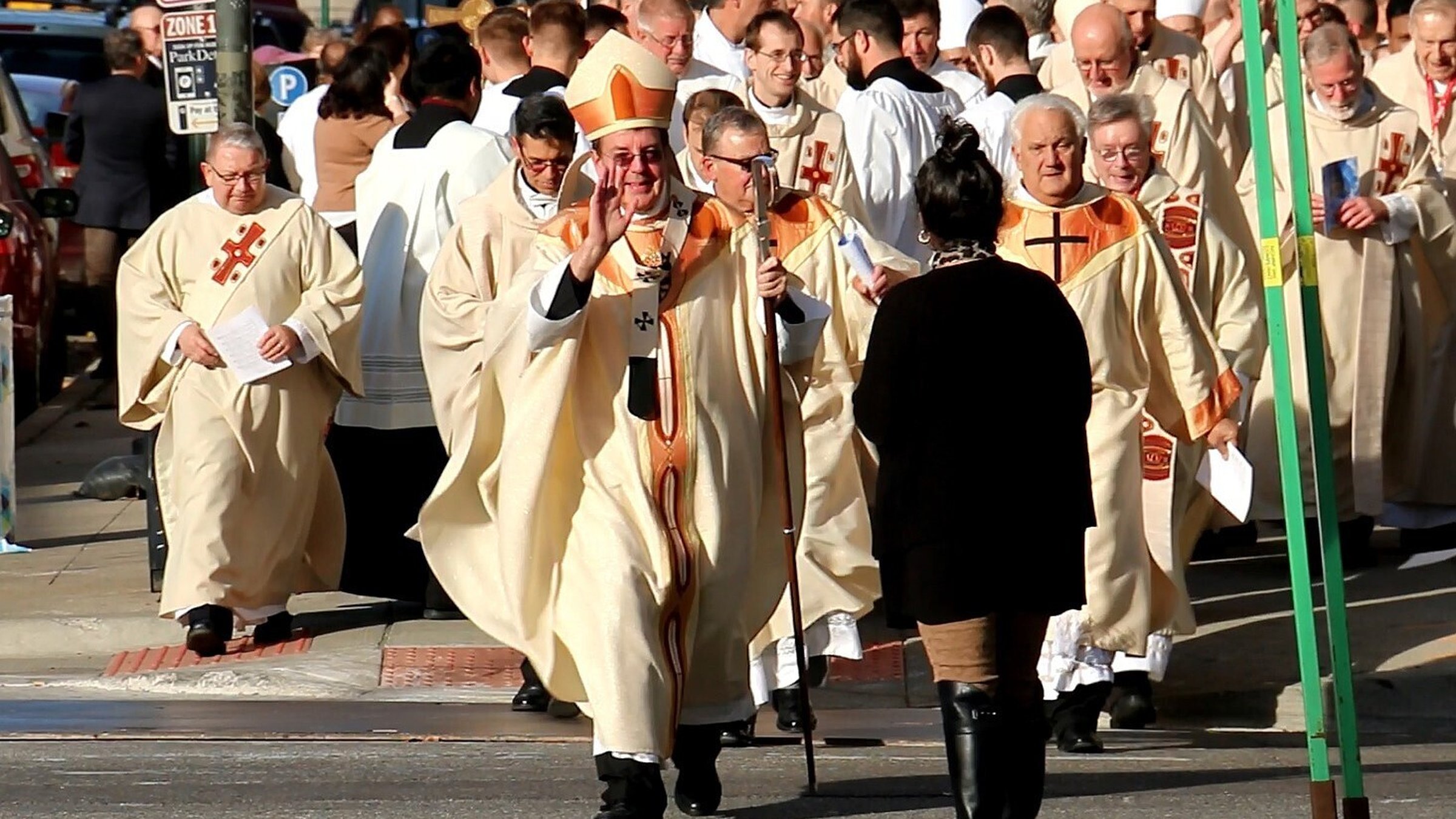Synod members reflect on 'great joy' of historic gathering, ongoing work to transform local Church in the spirit of Unleash the Gospel
DETROIT — Sometimes, a picture is worth a thousand words.
During Synod 16, which took place in the Archdiocese of Detroit from Nov. 18-20, 2016, perhaps the image history will remember most will be the one in which Detroit’s archbishop led a group of 400 Catholics through the streets of downtown Detroit, a crucifix held high in the air.
After all, that, in a nutshell, was the reality the synod set out to accomplish: to make Christ visible to the world.
“The one visual memory I have is of us going from the meeting room in the hotel in a procession up Washington Boulevard for the Mass in St. Aloysius,” Archbishop Allen H. Vigneron said in a recent interview commemorating the synod’s fifth anniversary. “There's this saying that the Catholic Church is, ‘Here comes everybody.’ And I thought, well, that's what we're saying to the city of Detroit: ‘Here comes everybody.’”
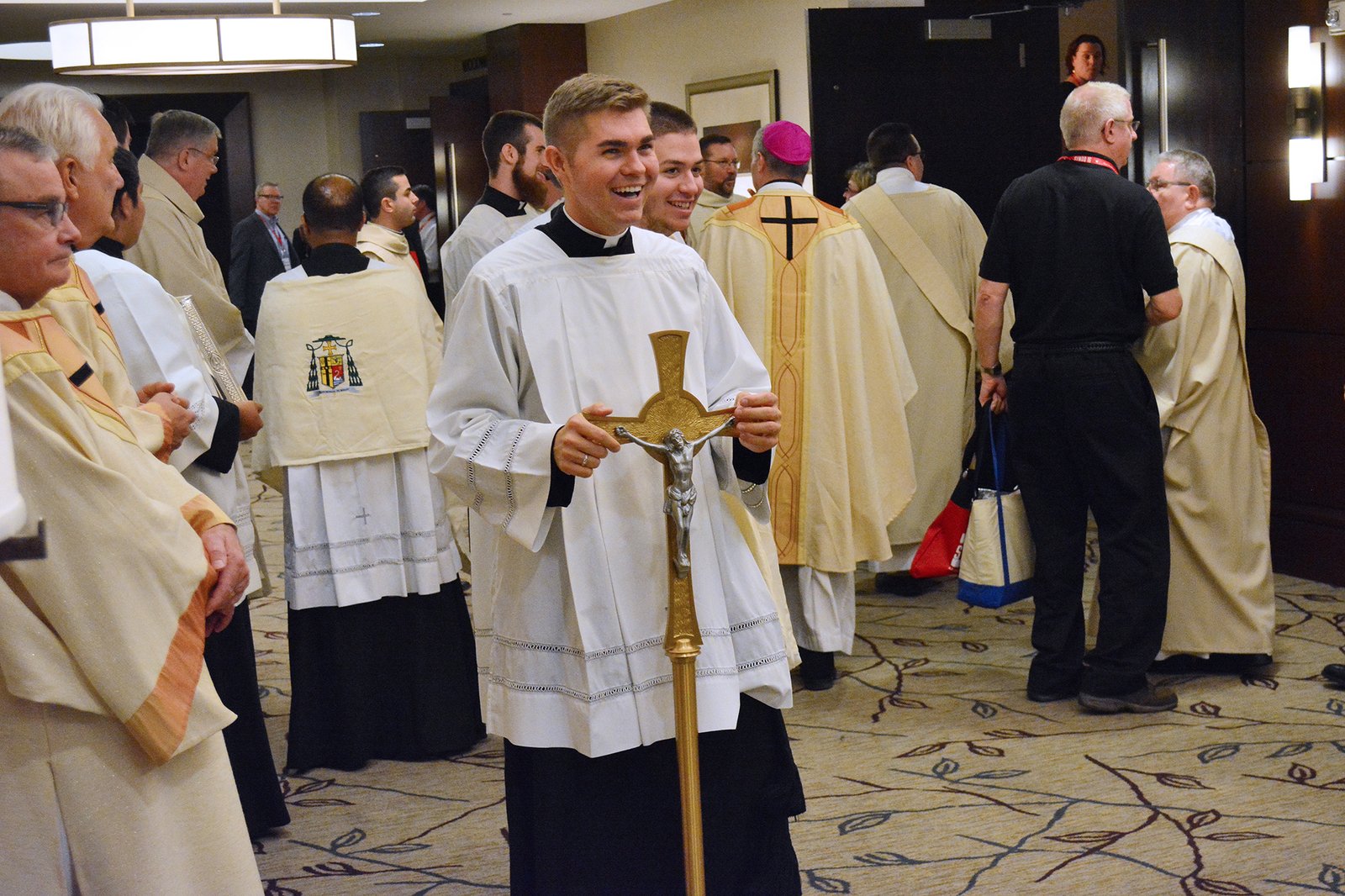
Five years after that transformative weekend, the Archdiocese of Detroit is well on the path toward the “missionary transformation” that was envisioned as a catalyst for evangelization in southeast Michigan, say those who were present.
“There’s a definite line, before the synod and after the synod,” said Lidia Rojas, a member of Synod 16 from Holy Family Parish in Novi. “We are learning to do things differently. I remember Archbishop Vigneron said, ‘We are going from maintenance to mission.’ And that’s really true.”
The first synod in almost half a century in the archdiocese — the previous synod was in 1969 — was convened to push the local Church to rethink its approach to modern-day evangelization, reforming structures, practices and assumptions to make them more mission-oriented, said Msgr. Ronald Browne, the archdiocese's judicial vicar.
“The archbishop was concerned about the faith in the archdiocese in the sense that we had seen a number of closings over the years of parishes and schools,” said Msgr. Browne, who was tasked with leading the synod secretariat, a committee that helped plan and organize the synod and pre-synod regional meetings, which solicited more than 11,000 pieces of input from members of the faithful across the archdiocese. “We were looking at what would be needed to re-evangelize, to have the faith grow.”

After distilling such feedback and formulating propositions for the synod members to consider, Msgr. Browne said he, like many others, had a sense that the landmark gathering could be a springboard that altered the Church’s trajectory.
“There was this great joy that we were working on something that was greater than ourselves, something that was going to be historic,” Msgr. Browne said.
In the leadup to the synod, Archbishop Vigneron and Detroit’s auxiliary bishops led a “Year of Prayer for a New Pentecost” in the archdiocese, as well as a Mass for Pardon at the Cathedral of the Most Blessed Sacrament, during which the archbishop asked God's forgiveness for the ways in which the Church had kept the Gospel “leashed,” he said — including sins of racism, apathy and cynicism — and prevented people from encountering Jesus.
Those present remember the powerful image in which Detroit’s bishops lay prostrate before the altar, imploring God for His mercy, a necessary precursor to what the Church’s leaders would ask the Holy Spirit to accomplish in the Archdiocese of Detroit.
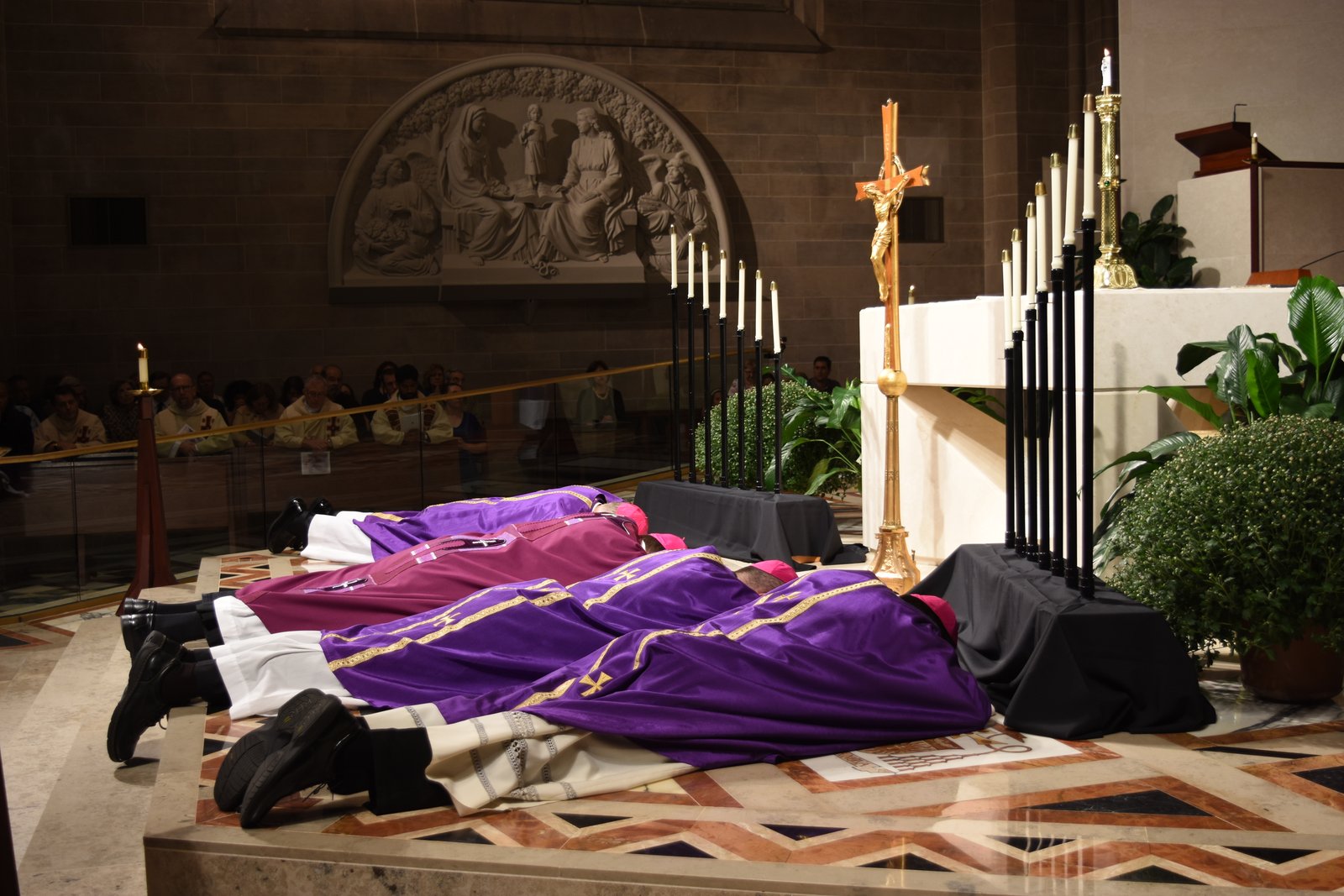
“That was such a pivotal moment, I think, in preparation for the synod. That really made us all ready to go into the synod without those burdens holding us back,” said Janet Diaz, Ph.D., former dean of the Institute for Ministry at Sacred Heart Major Seminary and director of pastoral formation at Holy Family Parish.
Diaz, like others, remembers being struck by the archbishop’s disposition during the synod’s opening session, listening to what the Church had to say.
“Archbishop Vigneron was sitting at a table near the front of the room, and most of the time he was sitting at that table by himself,” Diaz said. “He was so attentive, taking notes, observing, taking it all in. His body language was one of a humble servant of the Lord. And it so impressed me how he was listening so intently to what all of the faithful was bringing to Him during the synod.”
The archbishop said it was his goal to remain receptive to whatever the Holy Spirit wanted to offer during and after the three-day gathering, including listening for the “prophetic voice” in the room.

“I was very grateful to hear the reports from the various groups that deliberated on the synod propositions, and I made it my business to listen for what I thought that God was saying through what they said,” Archbishop Vigneron said. “The whole focus in the synod was, as it ought to be, ‘What's the Holy Spirit's saying to the Church?’ And you have to be immersed in prayer for that dynamic really to happen, otherwise, you're not doing anything different than the planning.”
Throughout the leadup to the synod, the archbishop had emphasized that the Church was open to the “signs and wonders” God might perform, even in modern times, as a reminder of His grace and love for the Church.
Such signs indeed were made manifest, as members of the synod reported opportunities to share their faith with others during the three-day weekend. One synod member, in particular, told a Michigan Catholic reporter that a cab driver who had transported him to the hotel had asked for prayers for an ailing shoulder — and that those prayers had been dramatically answered.
Such signs continued in the years after the synod — none bigger than the one that propelled a Detroit icon, Fr. Solanus Casey, to beatification in 2017.
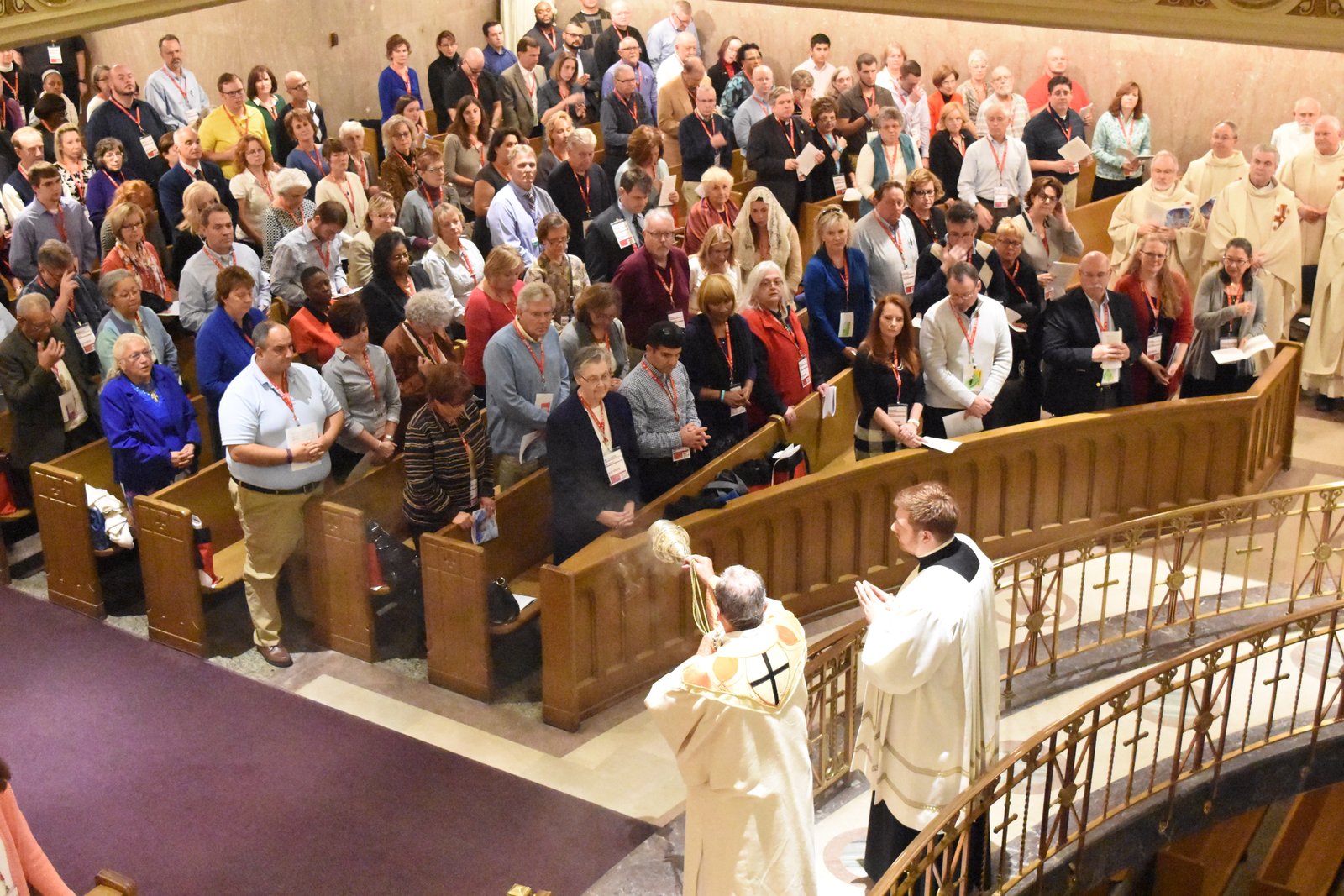
Six months after the synod’s conclusion, the archbishop shared what he felt he heard the Holy Spirit say to the local Church through his pastoral letter, Unleash the Gospel, which was released on the feast of Pentecost, June 4, 2017.
Auxiliary Bishop Gerard W. Battersby — who at the time was a priest serving as vice rector of Sacred Heart Major Seminary — recalled being awed by the beauty of the letter, calling it “so hopeful” for the Church in southeast Michigan.
“At the beginning of the letter, he talks about the necessity of unleashing the Gospel being everyone's responsibility in the Archdiocese of Detroit,” said Bishop Battersby, who was named an auxiliary bishop just three days after the synod’s conclusion and now serves as chairman of the archdiocese’s Unleash the Gospel Pastoral Council, which advises the archbishop on matters related to evangelization. “He recalls the vision of Ezekiel and the dry bones, in that it is the Holy Spirit who will bring new life to ‘these dry bones’ — the dry bones of Detroit and the archdiocese.
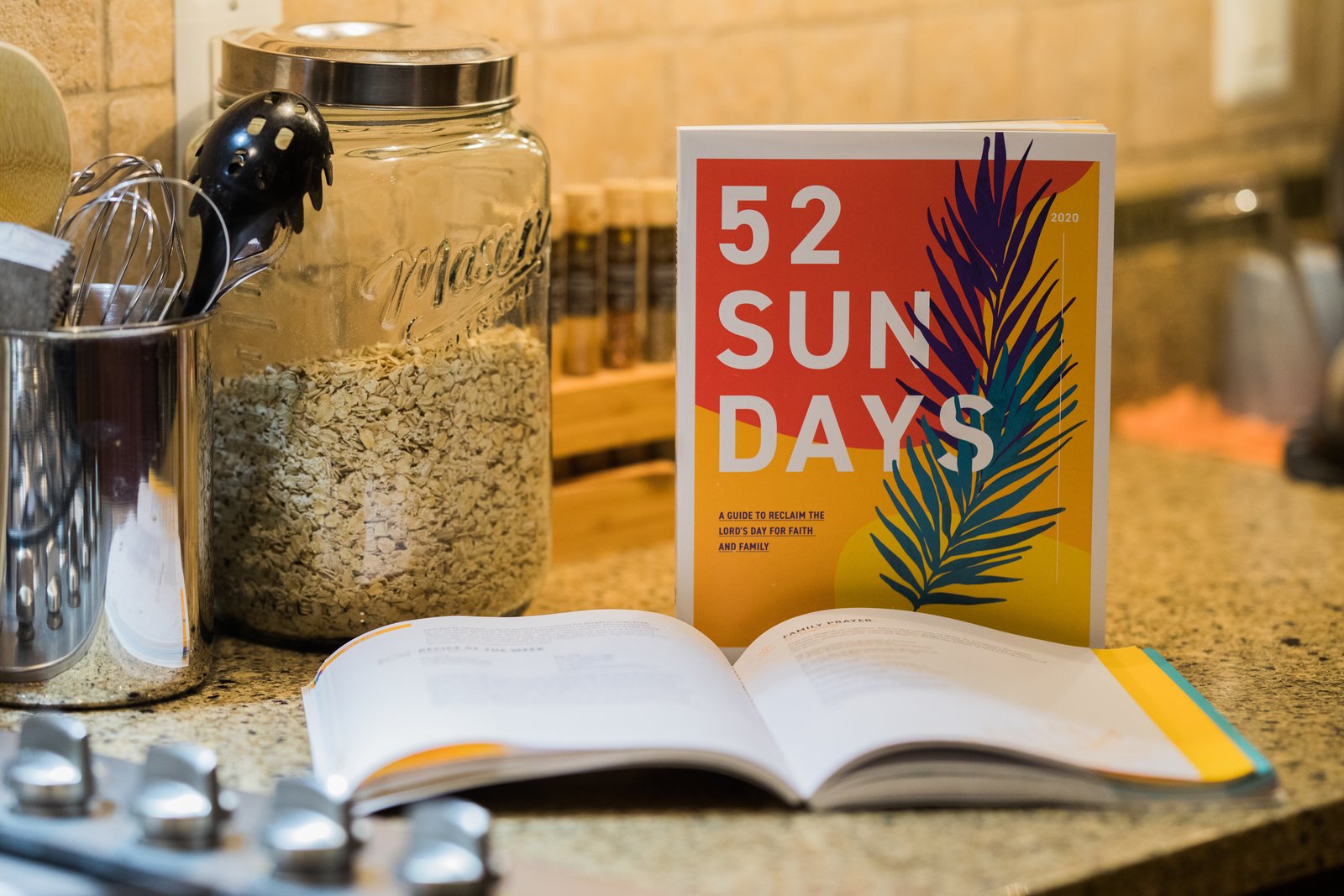
“That really excited me, that the one who has apostolic authority in this region, Archbishop Vigneron, has declared in his office as archbishop that the Holy Spirit is doing a new thing here,” Bishop Battersby said.
In the years since Unleash the Gospel was released, the Archdiocese of Detroit has made progress on several of the letter’s “action steps,” including the development of resources such as “52 Sundays,” a family guide to living the Lord’s Day; media initiatives such as Unleash the Gospel magazine and Detroit Catholic; and faith-sharing paradigms such as the Detroit Model of Evangelization, which seeks to equip pastors and parish staffs with tools to reach those both inside and outside their parishes.
Both parishes and the archdiocesan curia embraced a new identity and leadership structure, with pastors empowering and leaning on parish leadership teams to guide collaboration, and archdiocesan ministries reorganizing to reflect “mission direct” and “mission support” operations.
Intercessory prayer teams also became commonplace, with individuals and groups at the parish and archdiocesan levels committing to intentional, regular prayer with and for one another.

“The archbishop clearly knew that this wasn't just about creating a better organization,” said Richard Genthe, a local Catholic who served as an “expert adviser” to the synod. “This was about creating a culture counter to the culture that we come against each and every day. And as such, we were fighting against principalities far beyond just human. So a great investment was made in intercessory prayer consistently throughout the entire process.”
Even the archdiocese’s recent transition to “families of parishes” is a result of the synod’s graces, though not originally envisioned in the pastoral letter, the archbishop said.
“Without the synod, I don't think as a diocese we would have had the vision to move forward with families of parishes as a way to organize ourselves for the sake of the new evangelization,” Archbishop Vigneron said. “That’s a very important fruit of the synod.”
The effort, announced last year in response to the twin challenges of the pandemic and demographic trends showing a decrease in the number of available priests, is designed to strengthen parishes’ ability to focus on mission by emphasizing collaboration and shared responsibility.
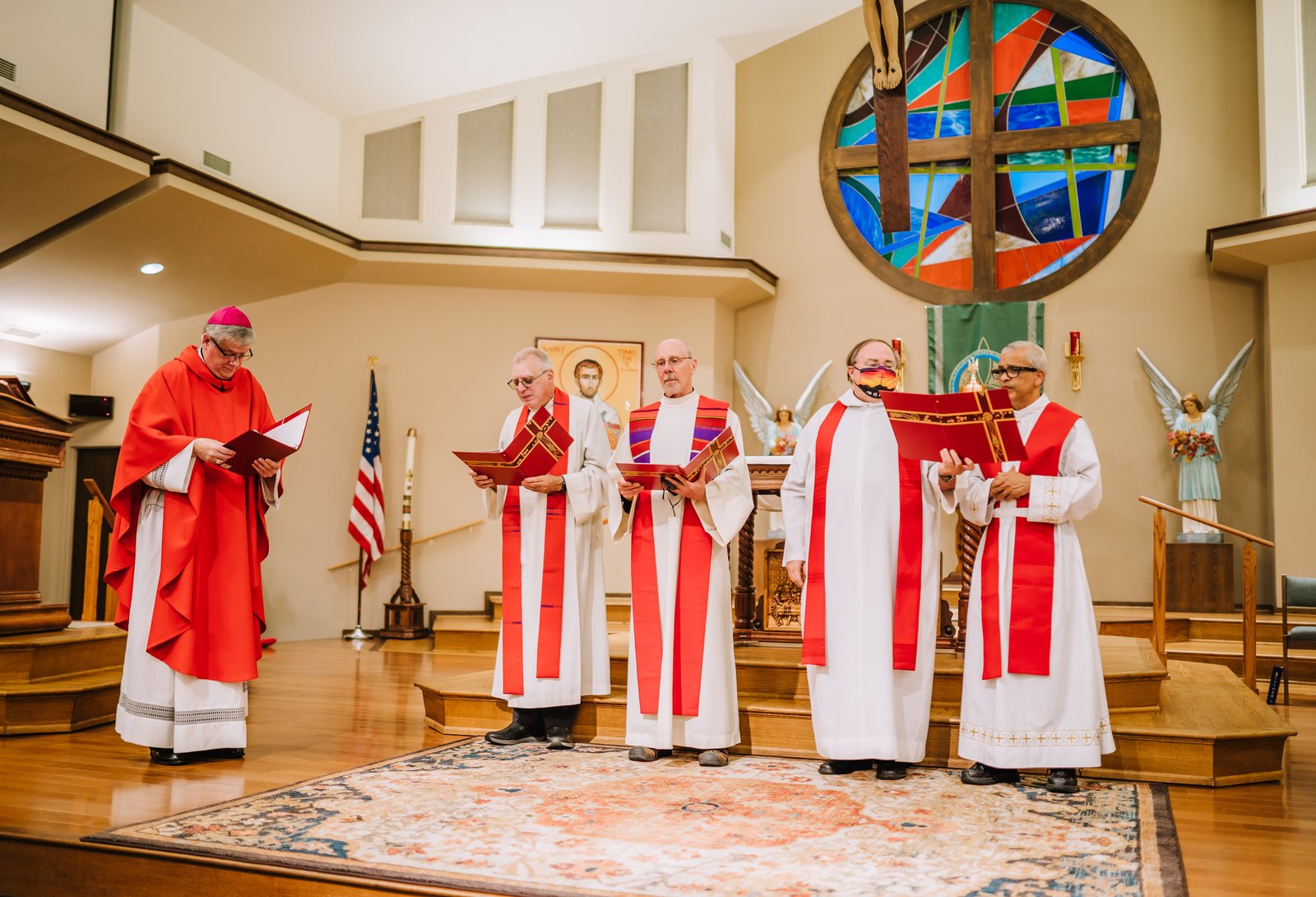
With Pope Francis declaring a synod for the global Church in 2023 focused on synodality — a word that means “journeying together” — Detroit’s Synod 16 puts the archdiocese one step ahead, Bishop Battersby said.
“What Pope Francis is asking of us in this preparatory period, the diocesan phase of the synod, is what Archbishop Vigneron charged the archdiocese in his pastoral letter, Unleash the Gospel,” Bishop Battersby told those gathered Oct. 17 at the Cathedral of the Most Blessed Sacrament. “It is what we have been purposely about these past eight years in the AOD and we continue to embrace in families of parishes.”
Moving forward, the archdiocese still has much to unpack in Unleash the Gospel, but progress is being made, said Kathleen McCann, chairwoman of the archdiocese’s Catholic Schools Council and a synod member.
“The temptation is to measure things in our time, not in God's time,” McCann said. “So as much as the archdiocese has been bearing fruit over the last five years, I'm so hopeful and so confident we're going to continue to bear fruit.”

McCann said patience is a virtue, especially when it comes to trusting in the Lord’s providence to act within His Church.
“The archbishop was talking to a group about the things he had learned in the first few years after the synod, and he said something that's stuck with me ever since,” McCann said. “He said, ‘Remember to be disciples, but trust that God is working. Without this daily and persevering conversion to abandonment, we will be beguiled by the false security of the seemingly safer path of halfway measure. Not only would this be a sure road to failure, but even more surely, and even more sadly, a form of service unworthy of a true disciple of Jesus Christ.’
“Jesus Christ doesn't deserve halfway measures,” McCann added, paraphrasing the archbishop. “He wants boldness and wants trust, and he wants it all. And if we keep doing that — every single day when we get up, if we start again — we'll be right where he wants us to be: on mission to a world that needs his message urgently.”
Copy Permalink
Archdiocese of Detroit Unleash the Gospel

